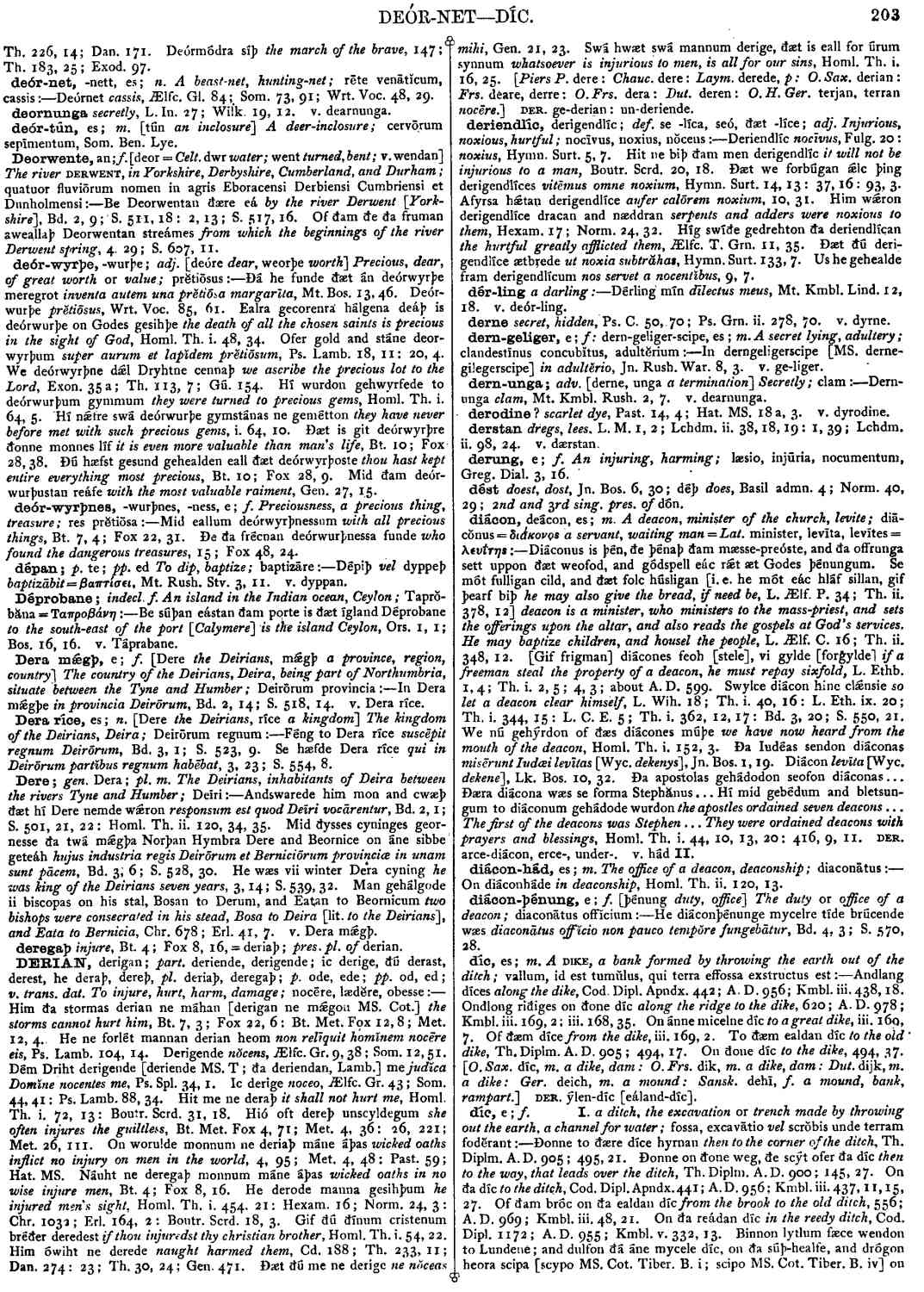díc
- noun [ masculine ]
-
Andlang díces
along the dike,
- Cod. Dipl. Apndx. 442 ;
- A. D. 956 ;
- Kmbl. iii. 438, 18.
-
Ondlong riðiges on ðone díc
along the ridge to the dike,
- 620 ;
- A. D. 978 ;
- Kmbl. iii. 169, 2;
- iii. 168, 35.
-
On ánne micelne díc
to a great dike,
iii.- 169, 7.
-
Of ðæm díce
from the dike,
iii.- 169, 2.
-
To ðæm ealdan díc
to the old dike,
- Th. Diplm. A. D. 905 ;
- 494, 17.
-
On ðone díc
to the dike,
- 494. 37 .
Bosworth, Joseph. “díc.” In An Anglo-Saxon Dictionary Online, edited by Thomas Northcote Toller, Christ Sean, and Ondřej Tichy. Prague: Faculty of Arts, Charles University, 2014. https://bosworthtoller.com/7663.
Checked: 1